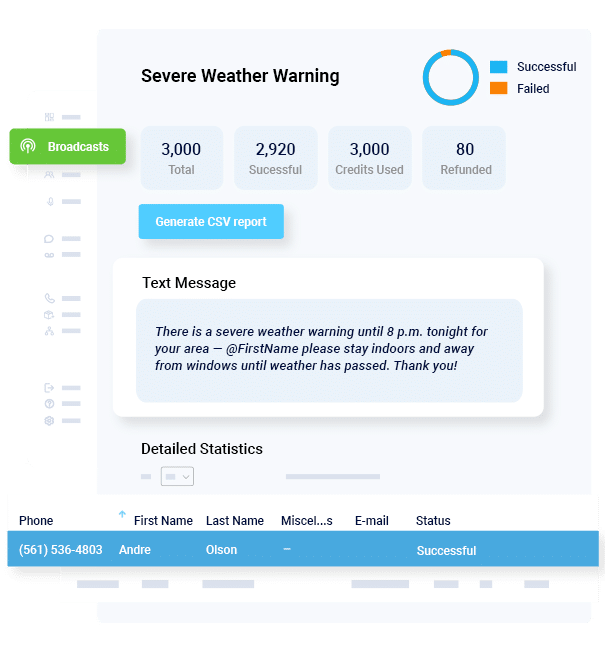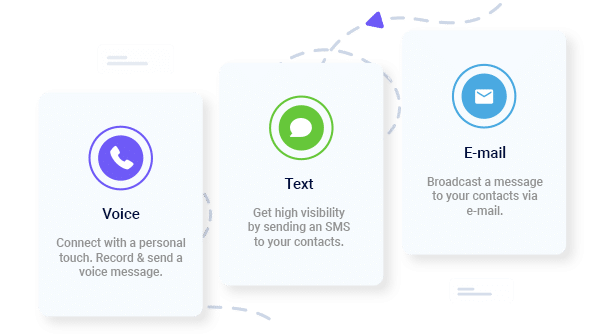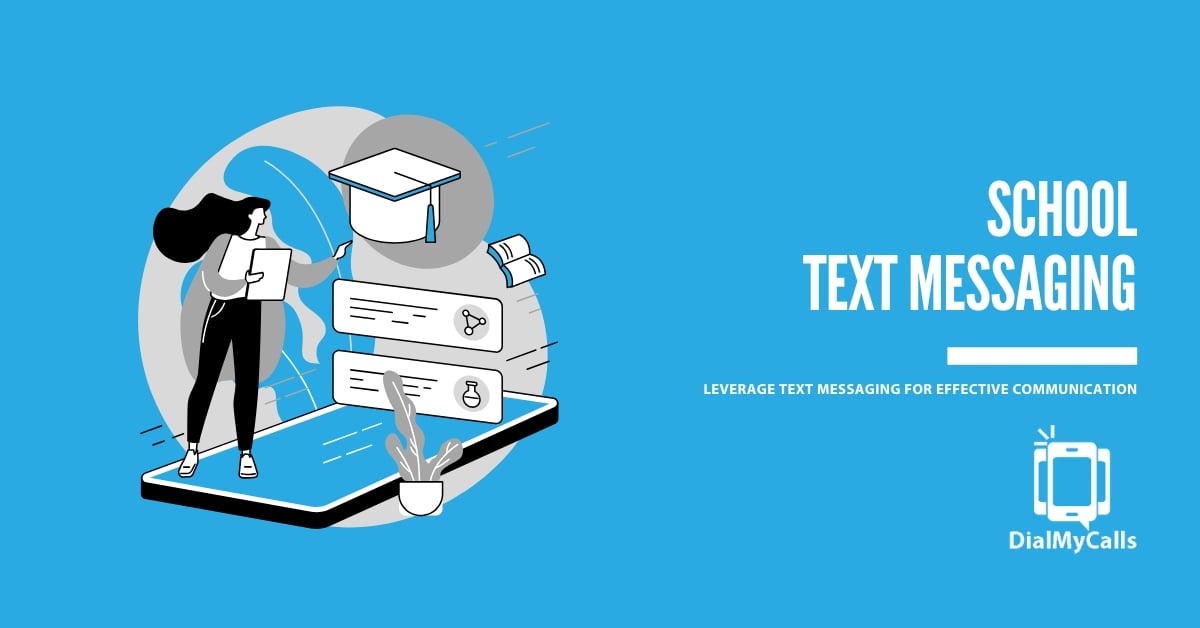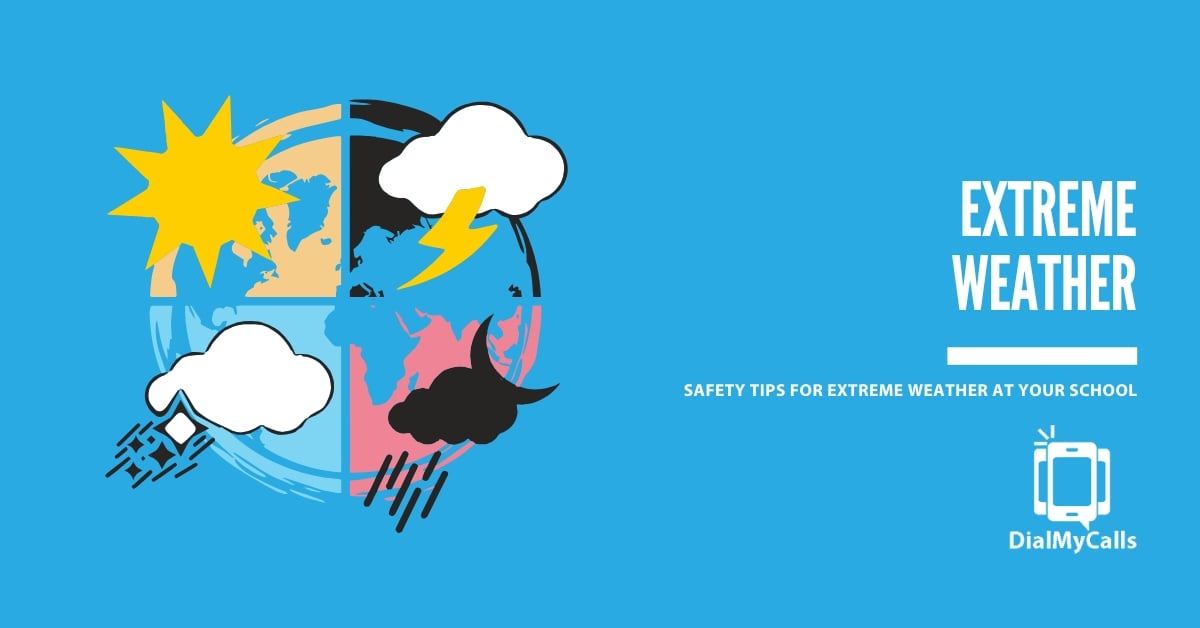Author
Tim Smith is the Media Manager at DialMyCalls, where he has leveraged his expertise in telecommunications, SaaS, SEO optimization, technical writing, and mass communication systems since 2011. Tim is a seasoned professional with over 12 years at DialMyCalls and 15+ years of online writing experience.
Try Using DialMyCalls Right Now
Start For FreeRecent Posts
- SMS Marketing Metrics: How to Measure and Improve Your Text Campaign’s Success
- What are SMS Carrier Fees and How to Lower Your Costs
- 8 Creative SMS Marketing Ideas to Boost Engagement This Summer
- 15 Ways to Use QR Codes For Event Promotion & Attendee Engagement
- Top 6 Automated Calling Service Providers For Your Business
Categories
“I am a youth minister and have spent hours in the past calling students individually to remind them of an upcoming event or to get out an urgent announcement. With DialMyCalls.com, I cut that time down to about 1 minute. I also love how I can see exactly who answered live and how long they listened so I know if they heard the whole message. DialMyCalls.com is the best website I have stumbled upon all year! Thanks!”
Central Baptist Church
Try Using DialMyCalls Right Now
Start For FreeWinter Weather Preparedness for Schools: Top 5 Safety Tips
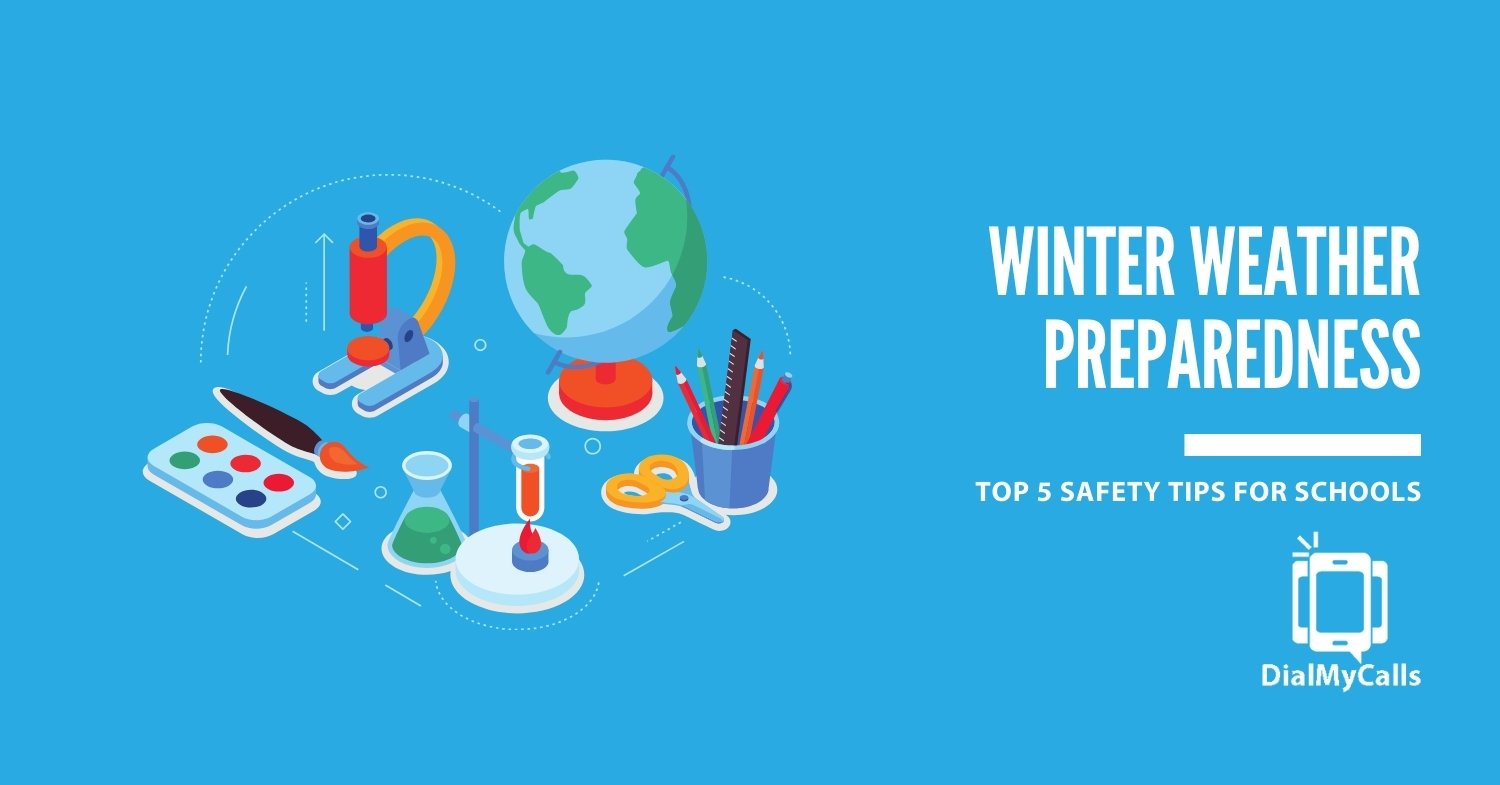
Winter is here, and I know that for schools, this means it’s time to get serious about safety. While snow days might sound fun, unpredictable weather can quickly turn into a logistical headache and, more importantly, a safety concern for everyone involved.
Between snowstorms, icy roads, and freezing temperatures, winter weather calls for careful planning. By preparing now, we can keep everyone—students, staff, and families—safe and informed no matter what winter throws at us.
So, here are my top 5 safety tips for winter weather prep.
1. Set Up a Reliable Weather Monitoring & Alert System
Winter weather doesn’t always give much notice. One minute, it’s light snowfall, and the next, you’re dealing with a full-blown blizzard. Staying informed is key to keeping everyone safe and out of unexpected situations.
The first step in any weather preparedness plan is staying up-to-date. Start with dependable sources like the National Weather Service or weather apps like AccuWeather. But remember, staying informed is only step one. When a storm is brewing, the real challenge is how quickly and effectively you can notify everyone, especially parents, students, and staff.
Relying on traditional methods like phone calls or emails can cause delays, and social media isn’t always the most reliable way to get crucial updates to families. That’s where an SMS notification system, like DialMyCalls, comes in. By integrating this system, schools can send instant alerts directly to students, staff, and parents via text or voice messages. This helps ensure that families are not left guessing about delays, school closures, or other important announcements.
Pro Tip! |
|---|
| Create a dedicated contact list specifically for winter emergencies with DialMyCalls, so that you’re ready to go when the time comes. Remind families to opt in so they’re never left out of the loop! |
2. Winterize Your Building & Facilities
Winter weather can be especially tough on school buildings, particularly older ones. From frozen pipes to malfunctioning heating systems, cold temperatures present a range of challenges that could quickly lead to safety concerns. Winterizing your school is more than just preparing for cold temperatures; it’s about making sure the building is safe and accessible for all students, including those with special needs.
Here’s what you can do to winterize:
- Pipe Protection: Frozen pipes are a common winter issue that can lead to water damage and costly repairs. To prevent this, schools should insulate exposed pipes, especially those in unheated areas like basements, attics, and outdoor maintenance sheds. You can also install heating tape or pipe insulation sleeves on vulnerable pipes.
- Heating System Check-Up: The last thing you want on a cold day is a broken heating system. Schedule a maintenance check before the winter chill sets in to ensure your heating system is in good working order. Have your HVAC technicians inspect boilers, furnaces, and other equipment to ensure they are functioning optimally.
- Snow and Ice Removal: Keeping pathways clear of snow and ice is crucial for preventing accidents. Make sure to have the right tools, such as shovels, snow blowers, and de-icing chemicals, to maintain safe walkways. Stock up on salt, sand, and grit to keep slips and falls to a minimum.
- Plan for Students with Special Needs: Ensure facilities are fully accessible for students with special needs or other health conditions. This includes ensuring facility accessibility, timely medication access, and providing extra time for students with mobility challenges.
Pro Tip! |
|---|
| Use DialMyCalls to send out reminders to your maintenance staff, ensuring all winterization tasks are completed on time. This will ensure that nothing is overlooked, from medication accessibility to heating system checks. |
3. Implement Transportation Safety Protocols
Transportation safety during the winter months is one of the most critical areas to address. Snow-covered roads, icy conditions, and shorter daylight hours can all make for dangerous driving conditions for both school buses and personal vehicles.
Here’s how to keep your transportation safe and smooth:
- Equip Your Buses: Make sure each bus is stocked with the necessary winter gear. This includes items such as tire chains for traction, sandbags for weight distribution, and blankets in case of delays or emergency situations. Having extra windshield washer fluid and de-icer on hand can also prevent buses from getting stuck or delayed.
- Driver Training: Winter driving requires specialized skills. In addition to regular driver training, ensure that all school bus drivers undergo winter driving courses. They should be trained to handle icy roads, respond to sudden weather changes, and stay calm in an emergency situation.
- Plan Your Routes: Before winter arrives, review all bus routes to avoid areas that are prone to flooding or are difficult to navigate during a snowstorm. Have alternate routes ready in case you need to reroute buses due to bad weather or road closures.
Pro Tip! |
|---|
| Keep parents updated about transportation changes via DialMyCalls, so they’re aware of delays, route changes, or cancellations. This communication can help families plan their day accordingly and reduce confusion. |
4. Stock Up on Emergency Kits and Supplies
Winter weather can bring unexpected delays or even power outages. If school is delayed or canceled, students and staff might be stuck at school for longer than anticipated. To be fully prepared, it’s important to stock up on emergency supplies.
Make sure you’re stocked up with:
- Classroom Kits: Each classroom should have its own emergency kit that includes essential items like first-aid supplies, flashlights, blankets, bottled water, and non-perishable snacks. Teachers should also have a list of emergency contacts and instructions on what to do in case of a power outage or other disruptions.
- Centralized Supplies: Store larger emergency supplies like backup generators, extra blankets, bottled water, and a portable heating unit in a centralized location. This ensures quick access if there’s an extended weather event.
- Teacher Checklists: Provide teachers with a checklist for winter preparedness. This checklist can include items like checking classroom kits, ensuring that students have warm clothing, and reviewing emergency procedures.
Stay Connected with Mass Notifications
Create & Send a Broadcast to Thousands in Seconds
5. Train Staff and Communicate with Everyone
Even the best winter weather plan won’t work if staff members, students, and parents aren’t properly trained or informed. Effective communication and preparedness drills are essential to ensure that everyone knows what to do in case of an emergency..
Here’s how to keep everyone in the loop:
- Staff Training: Conduct regular winter-specific training sessions for staff members. These sessions should cover emergency evacuation plans, lessons on how to deal with power outages, and the procedure for dismissing students early or handling late arrivals.
- Winter Weather Drills: Practice scenarios like dealing with power outages, icy walkways, or long delays so everyone knows exactly what to do. Include both staff and students in these drills, so that no one is caught off guard when winter weather impacts the school day.
- Mass Communication: Use an SMS notification system like DialMyCalls to keep everyone in the loop about changes in schedules, closures, or weather-related updates. A quick message can help alleviate stress and confusion.
Ready, Set, Snow! DialMyCalls Has You Covered This Winter
Winter is unpredictable, but with a strong plan and DialMyCalls in your corner, you can handle anything the season brings. From instant weather alerts to transportation updates and emergency kits, DialMyCalls keeps your entire school community informed, prepared, and safe.
By using a multifaceted approach to winter preparedness—combining real-time alerts, facility maintenance, transportation protocols, and emergency supplies—you’ll ensure that your school is ready for whatever the weather throws at it.
So, let’s make this winter our safest one yet! Sign up with DialMyCalls and stay connected through the snow.
Keep Everyone Connected & Informed
Get the Word Out Quickly with Bulk Texting and Voice Calls
